Our Research Areas
We focus on a diverse range of research areas to advance the integration of technology and human emotions. Our publicly funded projects span several key domains, each contributing to our mission of enhancing lives through innovative solutions.
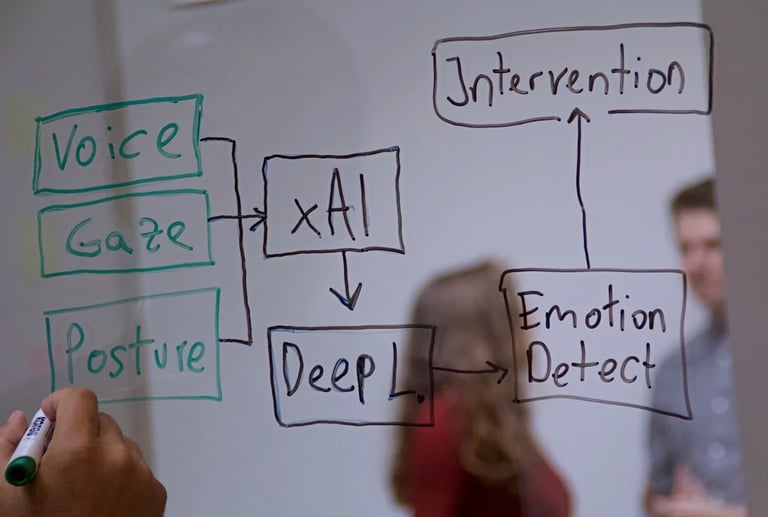

Research Fields
Pioneering research developing advanced algorithms integrating emotion AI human behavior.
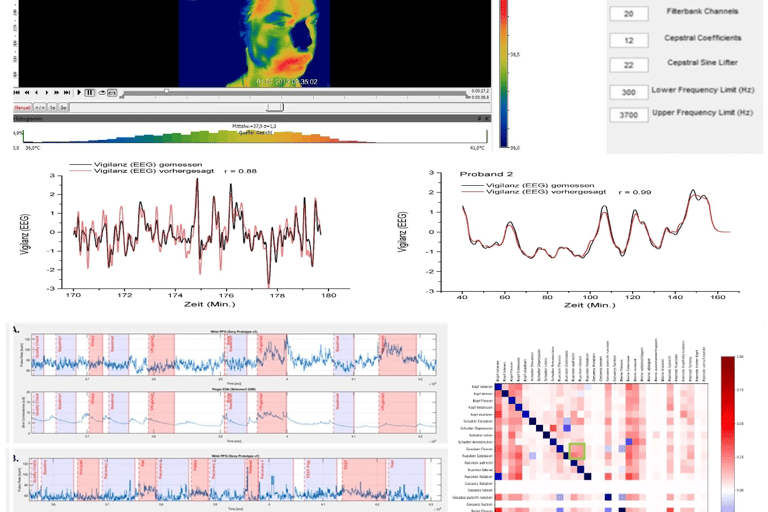



Affective Computing
Our core research involves developing sophisticated algorithms that detect and interpret human emotions. We utilize various modalities, including facial expressions, voice tone, and physiological signals, to create technologies that can understand and respond to human feelings.
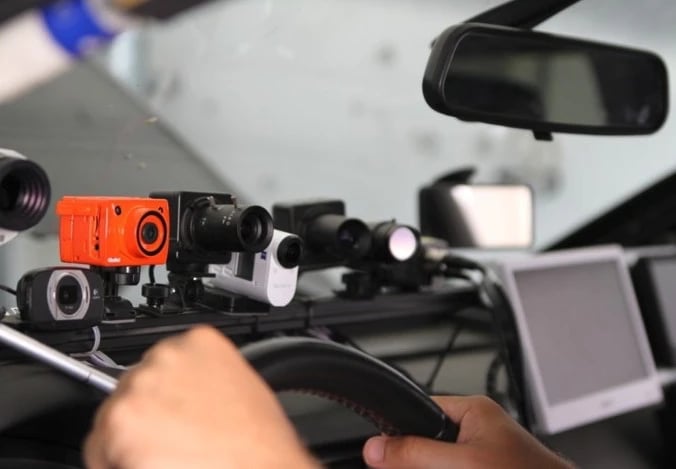

Computer Vision
Our research in computer vision focuses on understanding and interpreting visual data from the human face and body. We develop systems that analyze facial expressions, eye movements, and other visual cues to assess emotional and psychological states accurately.
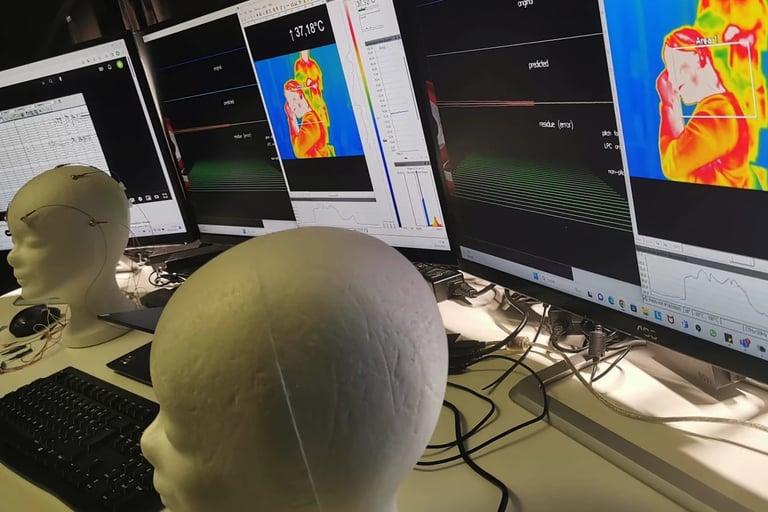

Audio Signal Analysis
Audio-Video Violence Detection
Application of advanced AI to detect violence, vandalism, and emergency situations using movement patterns, posture, facial expressions, gestures, weapons, screams, and other audio events. The approach combines image-to-text for real-time recognition and response.
Virtual Reality
Our innovative projects explore the use of virtual reality (VR) in therapeutic and diagnostic contexts. We develop VR-based tools for treating conditions such as unipolar depression, enhancing stress management, and supporting rehabilitation processes, providing immersive and effective solutions for mental health care.
We specialize in analyzing audio signals to extract meaningful information about emotional and psychological states. Our projects involve developing tools that use speech data to detect conditions such as trauma, affective disorders, and mental fatigue.
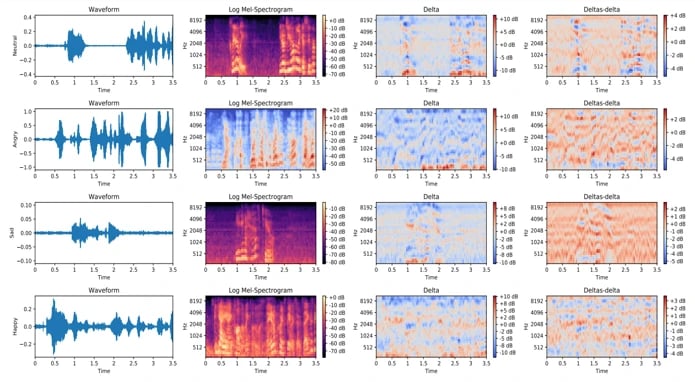

Data Synthesis
Techniques for generating synthetic data across various modalities like Text-to-Image, Text-to-Audio, and Text-to-Biosignal. This involves creating new datasets or augmenting existing ones to enhance machine learning models and AI systems.
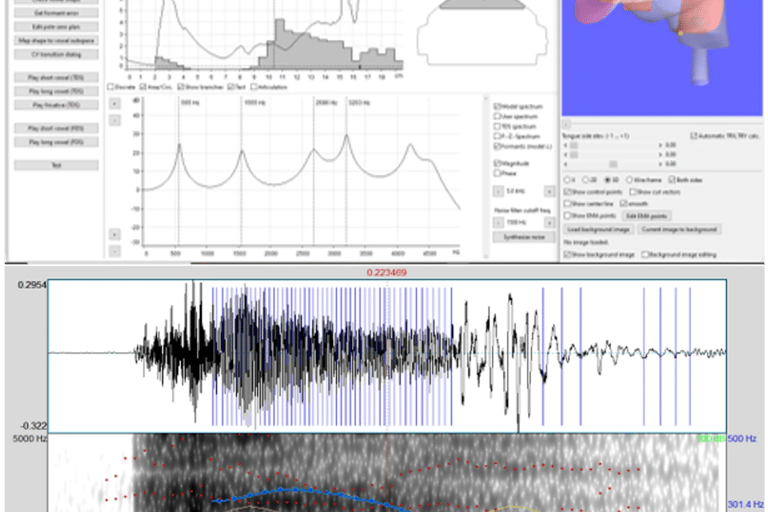

LLMs and Dialog Systems
Leveraging large language models (LLMs) for speech-based dialog systems in psychopathological settings, such as virtual therapists and just-in-time therapy support, aimed at enhancing mental health interventions and care.
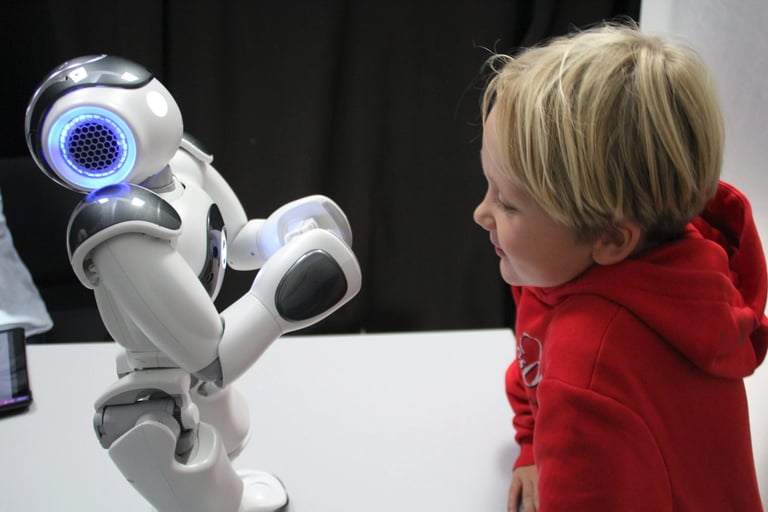

Human-Computer Interaction (HCI)
Our research in Human-Computer Interaction (HCI) focuses on designing and optimizing interfaces that facilitate seamless interactions between humans and technology. We aim to create intuitive and empathetic user experiences by studying how people interact with digital systems and devices.


